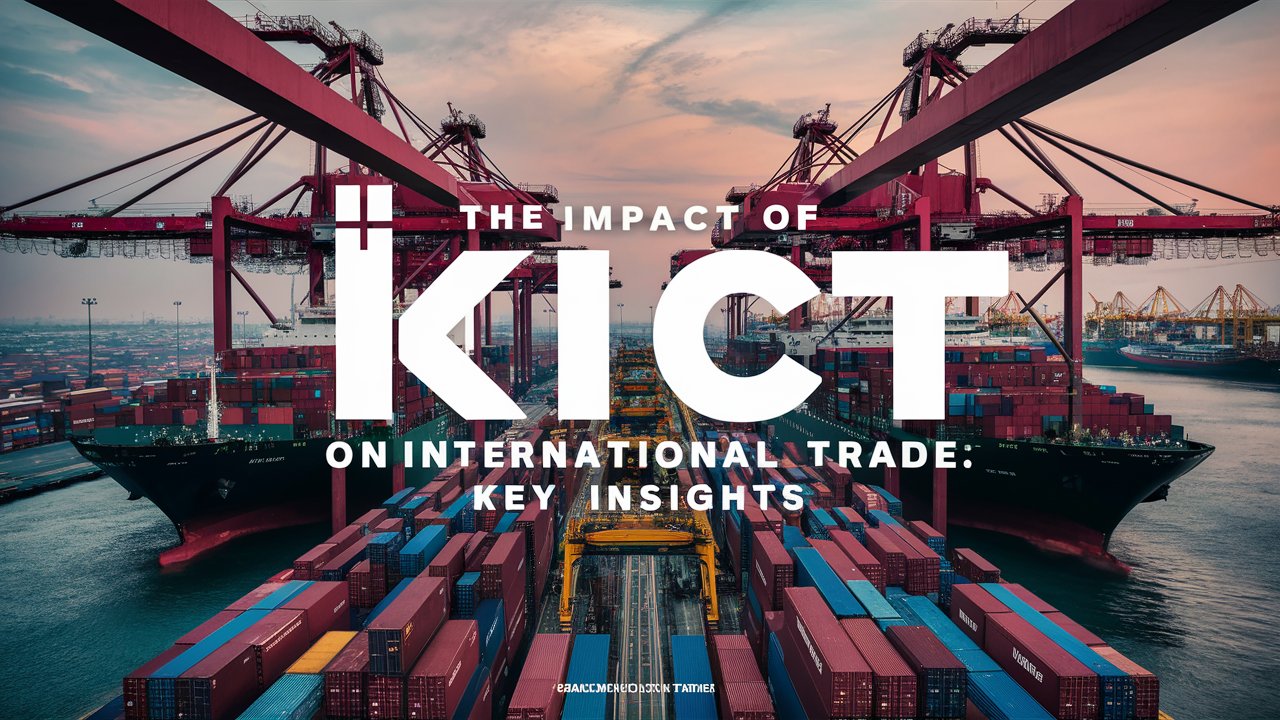Karachi International Container Terminal (KICT) stands as a pivotal hub in the global trade network, facilitating the movement of goods through one of Pakistan’s busiest ports. Understanding its impact on international trade unveils crucial insights into logistics, commerce, and economic development.
Understanding Karachi International Container Terminal (KICT)
Karachi, Pakistan’s largest city and economic center, hosts the Karachi International Container Terminal (KICT). Managed by Hutchison Ports, KICT plays a fundamental role in handling containerized cargo, serving as a vital link in the maritime trade routes connecting Asia, Europe, Africa, and beyond. Its strategic location on the Arabian Sea makes it a preferred gateway for trade to and from Pakistan.
Key Insights into KICT’s Impact on International Trade
- Efficient Cargo Handling: KICT boasts state-of-the-art infrastructure and equipment, enabling efficient handling of containerized cargo. Its advanced facilities streamline operations, reducing turnaround times for vessels and ensuring timely delivery of goods. This efficiency is critical for maintaining supply chain integrity and meeting global trade demands.
- Facilitating Global Connectivity: As a major transshipment hub, KICT facilitates seamless connectivity between international shipping lines. This connectivity enhances Pakistan’s trade links with global markets, promoting exports and imports across various industries. The terminal’s capacity to handle large volumes of cargo contributes significantly to Pakistan’s trade competitiveness on the international stage.
- Economic Contribution: The operations at KICT generate substantial economic benefits for Pakistan. By supporting trade flows, the terminal stimulates economic growth, creates employment opportunities, and attracts foreign direct investment (FDI) in the logistics sector. The ripple effects extend beyond the port city of Karachi, impacting regional development and industrial activity.
- Technology and Innovation: KICT continually invests in technology and innovation to enhance operational efficiency and service quality. Automated systems, digital platforms, and real-time tracking mechanisms improve cargo visibility and management, reducing costs and optimizing resource utilization. These technological advancements align KICT with global standards of port management and logistics excellence.
Real-World Applications and Success Stories
Several industries benefit from KICT’s operations, including textiles, automotive, pharmaceuticals, and electronics. Exporters leverage the terminal’s capabilities to access international markets efficiently, while importers benefit from reliable supply chain solutions. Businesses across Pakistan rely on KICT to facilitate trade transactions smoothly, contributing to overall economic resilience and competitiveness.
Implementing Effective Strategies with KICT
To capitalize on KICT’s impact on international trade, stakeholders can consider the following strategies:
- Leveraging Connectivity: Utilize KICT’s extensive network of shipping routes to expand market reach and diversify supply chains.
- Enhancing Efficiency: Collaborate with KICT to streamline logistics processes, reduce transit times, and optimize inventory management.
- Embracing Innovation: Adopt digital solutions and automated technologies to improve operational agility and customer satisfaction.
- Monitoring Performance: Continuously evaluate KICT’s performance metrics, such as throughput capacity and vessel turnaround times, to identify opportunities for improvement and growth.
Eventually
Serving as a gateway for international trade and a driver of economic growth, Karachi International Container Terminal (KICT) is very essential in Pakistan’s trading system. Its importance in enabling worldwide commerce movements is highlighted by its effective operations, strategic position, and technical developments. Businesses and politicians may boost competitiveness, seize new growth possibilities, and confidently negotiate the challenges of international commerce by comprehending and utilizing KICT’s capabilities.
In an increasingly interconnected world, KICT stands as a testament to Pakistan’s commitment to fostering a vibrant trade environment and strengthening its position in the global marketplace.


[…] delivery timelines, and the nature of goods. By carefully evaluating these factors and leveraging trade facilities like KICT for sea freight operations, businesses can streamline their logistics processes, reduce costs, and […]